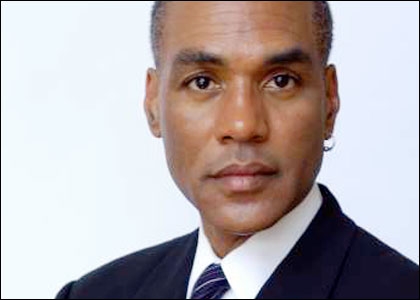Black AIDS Institute CEO Phill Wilson statement about 18th International AIDS Conference
It’s about Hope
Vienna, Austria – July 20, 2010 – Today’s announcement about a breakthrough in microbicide development is reason to celebrate. While it is too early to declare mission accomplished– we are still years away from actually having an effective microbicide- a few hugs and kisses with a little patting of the back might very well be called for.
While this might be the single most important science story of this 18th International AIDS conference, it is also a story about redemption, tenacity and hope. Two years ago South Africa, with the worst AIDS epidemic on the planet and an AIDS denialist for a president, was the pariah of the AIDS world. But with new leadership, a national HIV prevention and treatment plan, and new a monumental scientific breakthrough, like a Phoenix rising from the ashes, South Africa is a leader in the fight to eradicate HIV from the planet.
The last time this meeting was convened in 2008, microbicide research was basically dead in the water. Salim Abdool, Karim and Quarraisha Abdool Karim, the principal investigators on this current microbicide study worked on seven microbicide trials before coming up with this winning strategy. During this string of failure after failure, I’m sure that there were days when they asked themselves, why are we doing this. “It took us 20 years,” says Quarraisha. “We’ve been through the difficult days when we organized the Durban AIDS conference. That was a very difficult time for all of us,” said Salim. “We were having to deal with trying to grapple with this problem and how we were going to move forward…and at the same time we had essentially an obstructionist toward anything in trying to move forward…especially anything having to do with antiretrovirals. God forbid.” But their dogged determination and willingness to stick with what they believed in and their commitment to help save women’s lives caused them to stay their course.
But most importantly, this is a story about hope. “The women asked us, what can we do to protect ourselves? We had nothing to offer them.” said Quarraisha. “Today although we don’t have a microbicide, the results signal hope for women. That they have something that’s 39 percent more effective than nothing.”
These lessons would serve Black America well. Perhaps this example of a husband and wife team in rural South Africa with nothing but hope and an unwavering commitment to help save women’s lives to will provide us with hope–hope for women who have been disproportionately affected by AIDS and for communities being decimated by the epidemic. For like the former government of South Africa, many of us have been living in denial, as the virus has invaded our community, now causing many of our neighborhoods–from Manhattan, where almost 20 percent of Black men are testing positive, to our nation’s capitol, where in Southeast D.C., where roughly 1 in 20 residents has been diagnosed with HIV–to exhibit AIDS rates as high as many nations on the African Continent. But maybe we, too, can flip the script on our attitudes and beliefs, taking charge and changing the course of America’s AIDS epidemic.
We now have a National AIDS Strategy that places the wellbeing of Black people front and center; we have health-insurance reform that provides care to the least among us; and now we have the building blocks of a microbicide gel that can reduce Black women’s risk of becoming infected.
Contact info:
Phill Wilson, President and CEO of the Black AIDS Institute, is available for interviews and press inquiries. Contact Mondella Jones at Mondellaj@blackAIDS.org or (323) 681-4297. In Vienna call 0681-2048-3398. www.BlackAIDS.org

